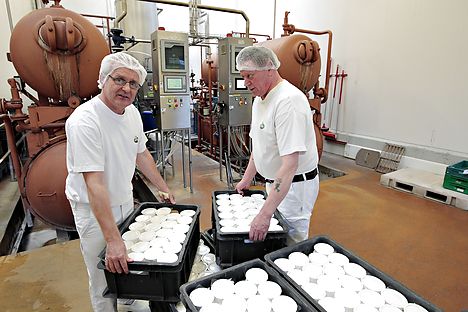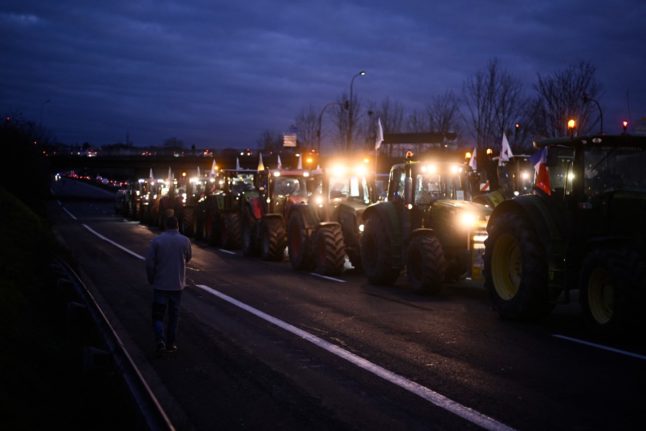FARMING
Russian ban could cost dairy giant Arla dearly
Russia’s import boycott of Western agricultural products could be especially painful for Danish dairy giant Arla, which says roughly one billion kroner and scores of jobs risk being lost.
Published: 8 August 2014 10:15 CEST

Arla Foods' Troldhede Dairy in Videbæk. Photo: Jørgen Kirk/Scanpix
Arla said on Friday that Russia’s import ban on food and agricultural products could cost the jobs of up to 75 employees.
“We are still calculating how bad it will be, but as of now our initial expectations are that it could be in the area of 50-75 jobs spread across various diaries,” Arla’s communications spokesman Theis Brøgger told Danmarks Radio.
The Russian market accounts for around one percent of Arla’s combined global revenue, or roughly one billion kroner ($180 million). The company stopped all production of Russia-bound products on Thursday and is currently trying to redirect thousands of tonnes of milk that would normally be headed to Russia.
According to Brøgger, Arla had pinpointed Russia as one of its strategic growth markets. The company primarily exports cheese and butter to the Russian market.
The Danish Agriculture and Food Council (Landbrug & Fødevarer) on Thursday characterised Russia’s sanctions as “serious” for the national agriculture sector but said Danish firms would be able to find customers for the products normally sent to Russia.
“Danish food companies are generally good at finding new markets. If Russia stops imports, it doesn’t mean that we will throw our goods away,” Landbrug & Fødevarer’s administrative director, Søren Gade, said in a statement.
“We believe that we can find sales opportunities in other parts of the world, including the growth markets in Asia where the demand for Danish food products is great. But there is clearly a risk that [Russia’s import ban] could affect prices on the global market,” Gade added.
Denmark’s agricultural exports to Russia amounted to 4.3 billion kroner ($772 million) in 2013. Nearly half of that, 2.1 billion kroner ($377 million), is from the export of pork, which Russia stopped at the end of January due to the risk of swine fever.
A researcher at the University of Copenhagen’s Department of Food and Resource Economics estimated earlier this year that up to 7,000 Danish agricultural jobs are dependent on exports to Russia.
Url copied to clipboard!


 Please whitelist us to continue reading.
Please whitelist us to continue reading.
Member comments